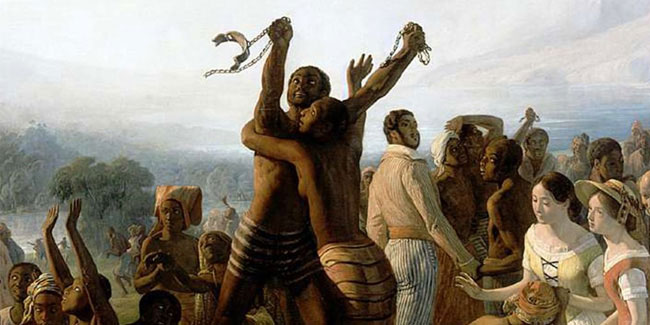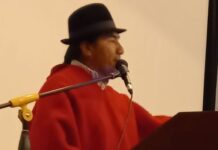(Debajo en idioma inglès)
(San Juan, P.R.) Hoy, 22 de marzo, se conmemora el 148 aniversario de la abolición de la esclavitud en Puerto Rico. El documento emitido por las Cortes españolas liberó a los esclavos, pero no cambió las leyes discriminatorias y restrictivas que controlaban la vida de los afrodescendientes. Con el cambio de soberanía en 1898, la situación de los puertorriqueños negros no mejoró, por el contrario, empeoró debido al marcado racismo de los estadounidenses.
Dos eventos marcaron una revolución racial en el Puerto Rico del siglo XX. El primero fue protagonizado por Ruth Fernández (1919-2012), famosa intérprete ponceña conocida como el Alma de Puerto Rico hecha canción. Hasta 1937 los artistas negros tenían que entrar por la cocina cuando actuaban en los hoteles. A principios de ese año, Ruth se negó a hacerlo. La cantante entró elegantemente vestida y con el corazón a punto de salírsele del pecho por la puerta principal del Hotel Condado Vanderbilt. Nadie se atrevió a detenerla.
En mayo de 1943, el representante Ernesto Ramos Antonini (1898-1963) quien sufrió en carne propia el discrimen racial cuando se le negó la entrada en un hotel de San Juan logró la promulgación de la Ley de Derechos Civiles de Puerto Rico (13 de mayo de 1943, número 131 (L.P.R.A., Sección 13-19) que prohíbe cualquier tipo de discrimen en Puerto Rico. Esta ley es anterior a la de Estados Unidos.
A pesar de los progresos logrados en la lucha en favor de la igualdad social para todos los ciudadanos, el racismo es un problema latente en Puerto Rico.
La primera organización fundada en la isla con el solo propósito de combatir el discrimen racial lo es el Concilio Puertorriqueño Contra el Racismo (CPCR). El Concilio celebra este año su 41 aniversario. Con tal motivo, hoy a las 11:00 de la mañana, la colectividad le rinde un homenaje a su fundador, Ebenecer López Ruyol, reconocido abogado e historiador nacido en Naguabo pero criado en la barriada Las Monjas en Hato Rey. La actividad se celebrará en Loíza.
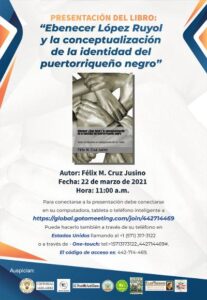
Cómo parte de la celebración la Dra. Lydia Milagros González García presentará el libro Ebenecer López Ruyol y la conceptualización de la identidad del puertorriqueño negro, del historiador Félix M. Cruz Jusino.
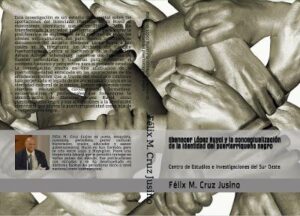
La actividad será transmitida a través de la plataforma gotomeeting. Para conectarse a la actividad debe conectarse en su computadora, tableta o teléfono inteligente a https://global.gotomeeting.com/join/442714469. Puede hacerlo también a través de su teléfono en Estados Unidos llamando a+1 (571) 317-3122l o a través de – One-touch: tel.: +15713173122,442714469#. El código de acceso es: 442-714-469.
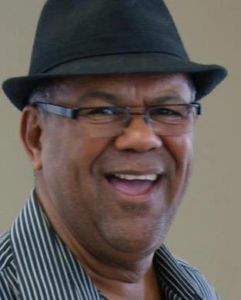
El Concilio Puertorriqueño Contra el Racismo fue incorporado por López Ruyol, junto a un grupo de amigos y colaboradores sindicalistas, el 28 de marzo de 1980. El Concilio se impuso como objetivos la denuncia del problema racista, la educación sobre las formas de enfrentar y eliminar el problema, el fortalecimiento identitario del puertorriqueño negro, visibilizarlo en los medios de comunicación y rescatar su aportación a la formación de la puertorriqueñidad.
Entre los logros más significativos están las luchas contra corporaciones cuya publicidad explotaba negativamente la imagen de las personas negras, como los casos contra Granchel y Compañía, la cual vendía un aceite de hígado de bacalao bajo la marca comercial de “El Negro”, y el Café Yaucono. Logró combatir el discrimen contra las mujeres negras en el Banco Popular, a las cuales se relegaba a sitios donde no tuvieran contacto con el público. Se combatió la exclusión de modelos negras en las pasarelas del país y los anuncios comerciales. Logró erradicar prácticas discriminatorias en la Universidad de Puerto Rico donde se postergaba a los negros en la otorgación de cátedra formal.
Los miembros del Concilio visitaron las universidades del país para concienciar sobre el racismo y la invisibilización del puertorriqueño negro. En algunas de esas conferencias participaron no solo los miembros de la organización sino el autor de la obra Narciso descubre su trasero, el Dr. Isabelo Zenón Cruz. De igual forma, el Concilio llevó su mensaje a múltiples escuelas públicas y privadas, ofreciendo a estudiantes y la facultad, educación sobre el problema racista en Puerto Rico y las formas de resolverlo en convivencia positiva.
Además de educar sobre el racismo, el Concilio se dio a la tarea de visibilizar al puertorriqueño negro. A través de charlas educativas en centros comunitarios, escuelas y universidades se inició el rescate de la aportación de los negros a la formación identitaria. Uno de los proyectos principales del Concilio, en colaboración con WIPR y la Fundación Puertorriqueña de las Humanidades, fue el documental El Legado de Arturo Alfonso Schomburg (1984). El cortometraje de 22 minutos recoge la vida y obra de Schomburg, su lucha antirracista y sus investigaciones sobre las grandes aportaciones de los hombres negros y las mujeres negras a través de los siglos al desarrollo de la civilización y las culturas.
El Concilio también produjo un programa televisivo a través de WIPR, un programa de radio, En Blanco y Negro, a través de Radio Uno (hoy Noti-Uno) y 11Q Cadena Nacional. Además, publicó el periódico informativo bisemanal, luego bimensual, En Blanco y Negro, llamado luego En Negro y Blanco.
En el 2003, López Ruyol, con los auspicios del Concilio, publicó el libro Boricuas son, son de aquí, ¿los conoces?, un compendio de 130 biografías de puertorriqueños negros. En el 2005 López Ruyol publicó el libro El racismo nuestro de cada día donde analiza la problemática racista, establece estrategias para combatirla y recoge algunos de los logros obtenidos por su gesta como directivo del Concilio.
En la actualidad, el Concilio continúa combatiendo arduamente la discriminación en todos sus aspectos, no solo el racial. López Ruyol y otros integrantes del Concilio ofrecen charlas y talleres sobre los problemas discriminatorios presentes en la sociedad puertorriqueña y asesoría legal en casos meritorios.
English:
Day of the abolition of slavery in Puerto Rico
(San Juan, P.R.) Today, March 22, marks the 148th anniversary of the abolition of slavery in Puerto Rico. The document issued by the Spanish Courts freed the slaves, but did not change the discriminatory and restrictive laws that controlled the lives of Afro-descendants. With the change of sovereignty in 1898, the situation of black Puerto Ricans did not improve, on the contrary, it worsened due to the marked racism of the Americans.
Two events marked a racial revolution in 20th century Puerto Rico. The first one was starred by Ruth Fernández (1919-2012), a famous singer from Ponce known as the Soul of Puerto Rico made song. Until 1937, black artists had to enter through the kitchen when they performed in hotels. Earlier that year, Ruth refused to do so. The singer entered elegantly dressed and with her heart about to leap through the front door of the Condado Vanderbilt Hotel. No one dared to stop her.
In May 1943, Representative Ernesto Ramos Antonini (1898-1963) who suffered racial discrimination in his own flesh when he was denied entry into a hotel in San Juan achieved the enactment of the Puerto Rico Civil Rights Law (13 of May 1943, number 131 (LPRA, Section 13-19) that prohibits any type of discrimination in Puerto Rico.This law predates that of the United States.
Despite the progress made in the fight for social equality for all citizens, racism is a latent problem in Puerto Rico.
The first organization founded on the island with the sole purpose of combating racial discrimination is the Puerto Rican Council Against Racism (CPCR). The Council celebrates its 41st anniversary this year. For this reason, today at 11:00 in the morning, the community pays tribute to its founder, Ebenecer López Ruyol, a renowned lawyer and historian born in Naguabo but raised in the Las Monjas neighborhood in Hato Rey. The activity will be held in Loíza.
As part of the celebration, Dr. Lydia Milagros González García will present the book Ebenecer López Ruyol and the conceptualization of the identity of the black Puerto Rican, by the historian Félix M. Cruz Jusino.
The activity will be broadcast through the gotomeeting platform. To connect to the activity you must connect on your computer, tablet or smartphone to https://global.gotomeeting.com/join/442714469. You can also do it through your telephone in the United States by calling + 1 (571) 317-3122l or through – One-touch: tel .: + 15713173122.442714469 #. The access code is: 442-714-469.
The Puerto Rican Council Against Racism was incorporated by López Ruyol, together with a group of unionist friends and collaborators, on March 28, 1980. The Council set itself as objectives the denunciation of the racist problem, education on the ways to confront and eliminate the problem, the strengthening of identity of the black Puerto Rican, making him visible in the media and rescuing his contribution to the formation of Puerto Ricans.
Among the most significant achievements are the struggles against corporations whose advertising negatively exploited the image of black people, such as the cases against Granchel and Company, which sold a cod liver oil under the trademark of «El Negro», and the Yaucono coffee. She managed to combat discrimination against black women at Banco Popular, who were relegated to places where they had no contact with the public. The exclusion of black models on the country’s catwalks and commercial advertisements was fought. He succeeded in eradicating discriminatory practices at the University of Puerto Rico where blacks were deferred in the granting of formal professorships.
The members of the Council visited the universities of the country to raise awareness about racism and the invisibility of black Puerto Ricans. In some of these conferences, not only the members of the organization participated, but also the author of the work Narciso discovers his butt, Dr. Isabelo Zenón Cruz. Likewise, the Council took its message to multiple public and private schools, offering students and faculty education on the racist problem in Puerto Rico and the ways to solve it in positive coexistence.
In addition to educating about racism, the Council undertook the task of making black Puerto Rican visible. Through educational talks in community centers, schools and universities, the rescue of the contribution of blacks to identity formation began. One of the main projects of the Council, in collaboration with WIPR and the Puerto Rican Endowment for the Humanities, was the documentary El Legado de Arturo Alfonso Schomburg (1984). The 22-minute short film collects the life and work of Schomburg, his fight against racism and his research on the great contributions of black men and black women through the centuries to the development of civilization and cultures.
The Council also produced a television program through WIPR, a radio program, En Blanco y Negro, through Radio Uno (now Noti-Uno) and 11Q Cadena Nacional. In addition, it published the biweekly, later bi-monthly, En Blanco y Negro, later called En Negro y Blanco.
In 2003, López Ruyol, under the auspices of the Council, published the book Boricuas son, they are from here, do you know them ?, a compendium of 130 biographies of black Puerto Ricans. In 2005 López Ruyol published the book El racismo Nuestro de cada día where he analyzes the racist problem, establishes strategies to combat it and collects some of the achievements obtained by his feat as director of the Council.
Today, the Council continues to vigorously combat discrimination in all its aspects, not just racial discrimination. López Ruyol and other members of the Council offer talks and workshops on the discriminatory problems present in Puerto Rican society and legal advice in meritorious cases.

